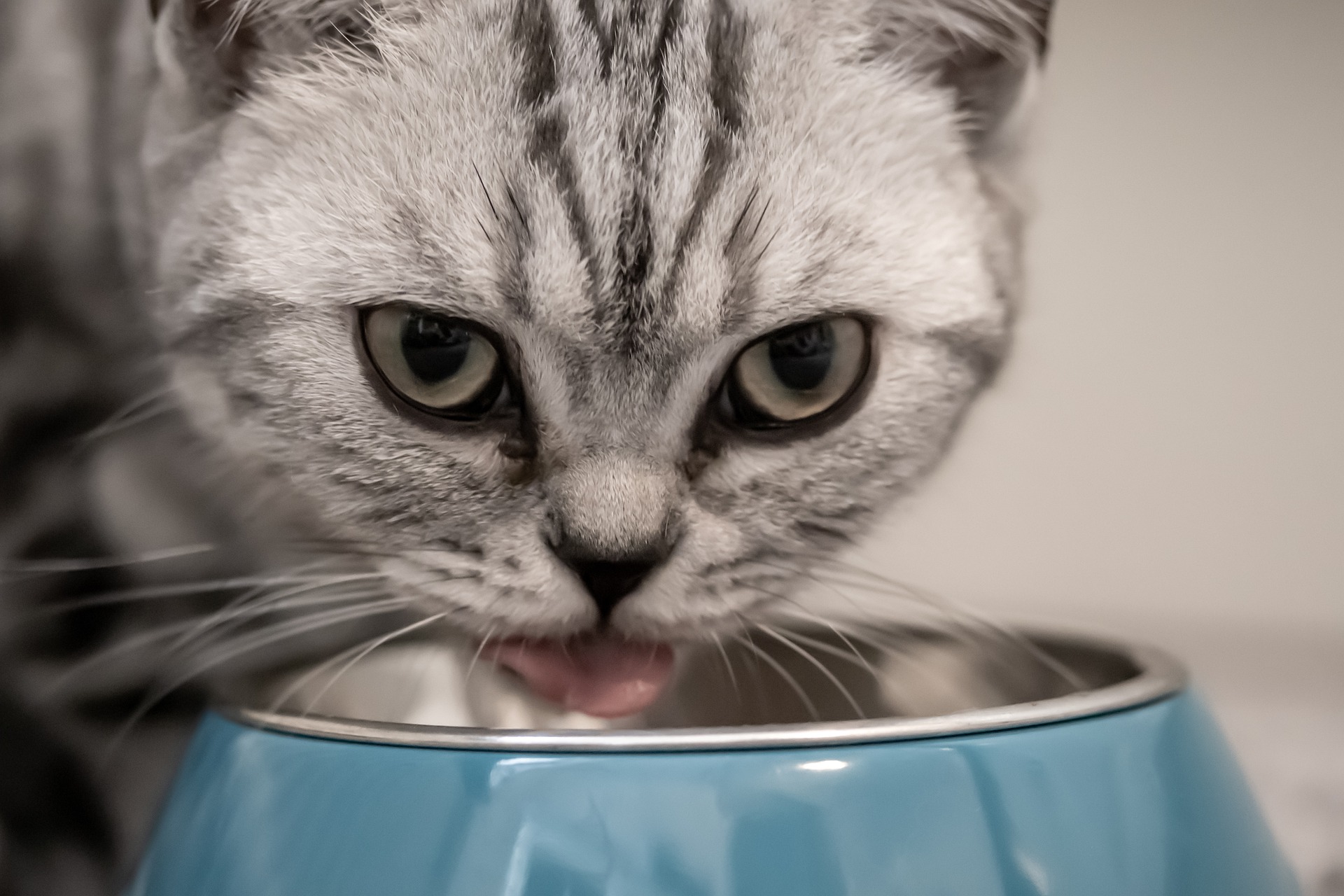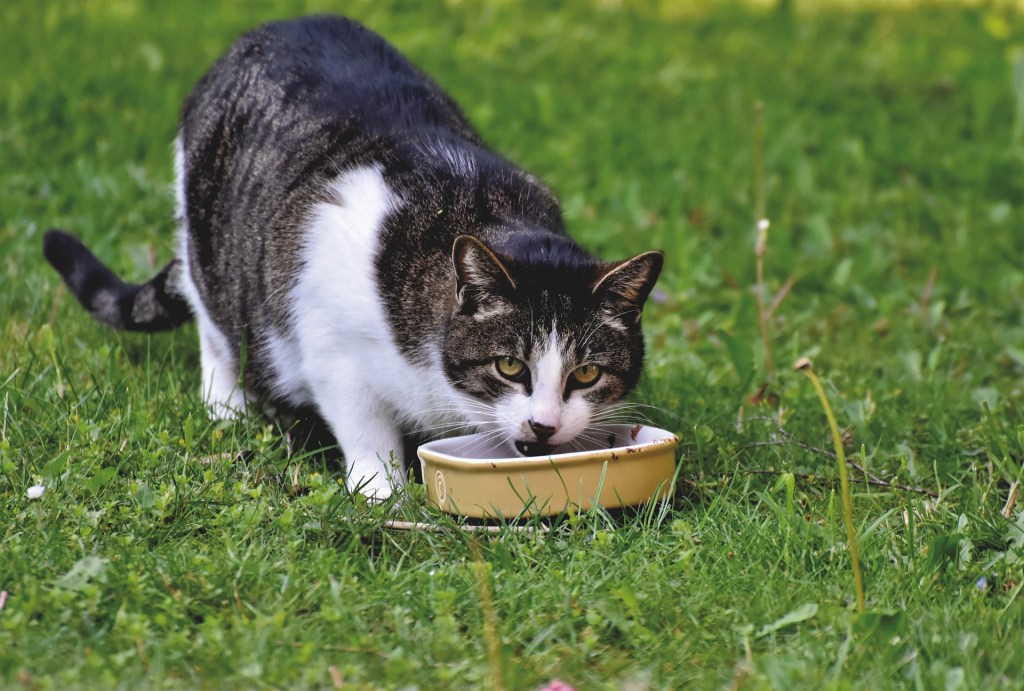Most cats get deeply excited about feeding time, but sometimes the appeal of food can spell trouble. Some cats feel so strongly about their food that they become possessive of it and aggressive toward people or pets in the home. This food aggression can make feeding your cat difficult and even unsafe for you and others who happen to be around at the time. It also indicates that your cat is feeling excessive stress about where his next meal is coming from. If your cat is displaying symptoms of food aggression, there are multiple ways you can help curb that habit.

Understanding food aggression in cats
It’s important to first understand the causes of food aggression before you can fix it. At the most basic, his reaction may result from instinctive behaviors that your cat still possesses. In the wild, cats hunt and eat independently, and having other animals around would threaten their ability to eat their prey.
There are multiple environmental factors that can contribute to this aggressive behavior. Your cat may be stressed by the presence of other pets in the home, and feeding your cat a few larger meals may leave him more determined to eat as much as possible since it will be a while before he gets his next meal. Boredom can also contribute — when your cat doesn’t do much during the day, mealtimes become bigger, more significant, and more exciting events.
As a result, your cat may exhibit aggressive tendencies like growling, hissing, or even scratching anyone who approaches him while he eats. He might guard his food bowls or the area where he’s fed, wolf down any food that he’s given, and beg you for more.
Start with a vet exam
Some physical issues, including hyperthyroidism and neurological conditions, can result in food aggression in cats. If your cat starts exhibiting these aggressive symptoms, then start with a trip to the vet. Your vet may perform a physical exam and order blood work to make sure your cat doesn’t have a physical condition causing the aggression.
Separate your cat
Once physical issues are ruled out, it’s time to make some changes to your cat’s environment. At feeding time, make sure he has space so that he doesn’t feel threatened. This might mean feeding him in a different room that pets and people won’t go into until he’s done.
Changing how often you feed your cat may also help him feel more reassured that food is always going to be available. You might try free feedings rather than having structured mealtimes. If you can’t leave food down, then break up your cat’s big meals into smaller meals every few hours. Not available to feed your cat every few hours? Try using an automatic feeder (or a few, if you have multiple cats) that will give your cat access to his food at pretimed intervals.

Entertain your cat
Boredom can make mealtimes into more significant events, so find ways to get your cat occupied. Make sure that you play with your cat multiple times a day. To satisfy your cat’s natural hunting instinct, after play, give him a treat, which can resemble how he’d hunt prey and then eat his catch in the wild.
You might also want to hide little bits of food or treats throughout the home. Your cat can follow his nose and go off in hunt of these special treats. This is an ideal option when you’re going to be out of the house for a while and want to keep your cat entertained.
You can also invest in a cat tree or a window box. These options can give your cat new vantage points and help keep him occupied.
Curbing food aggression in cats can be difficult, and it can take some time. It’s important to take immediate steps to keep humans and pets in the house safe, especially if your cat’s behavior is severe, so don’t hesitate to separate your cat during mealtimes until you can resolve this behavior. Then, try different changes and adjustments to see if you can get your cat feeling a bit more secure about his meals. With some time and experimentation, you should be able to find solutions that work for your cat and that leave him less focused on defending his food and better able to exist peacefully in the home.


